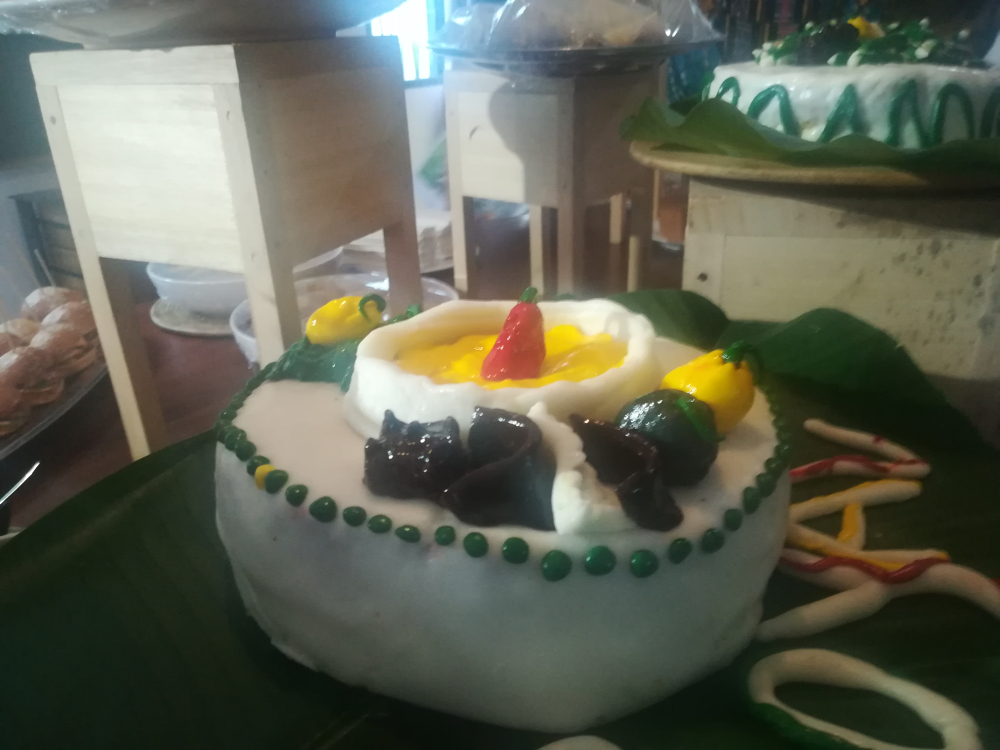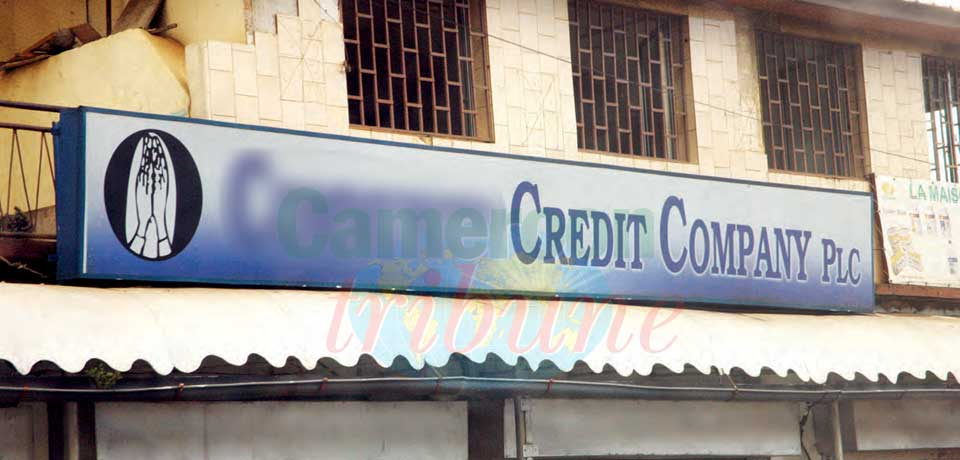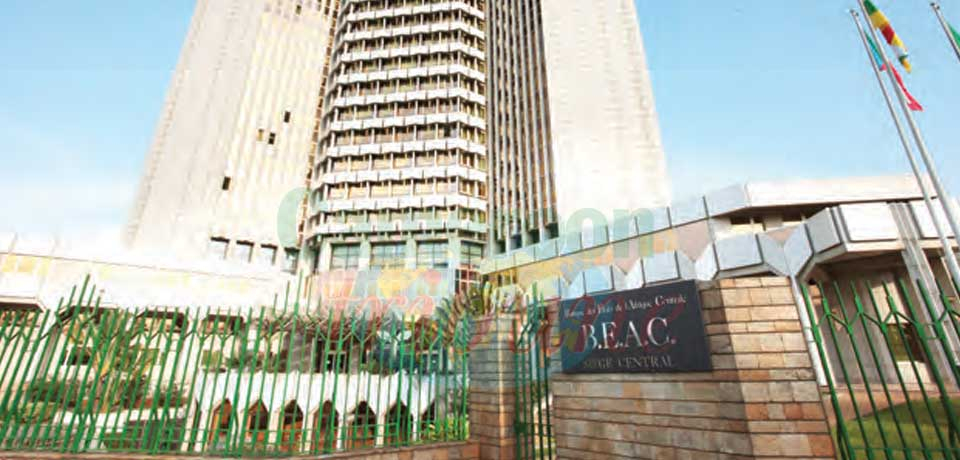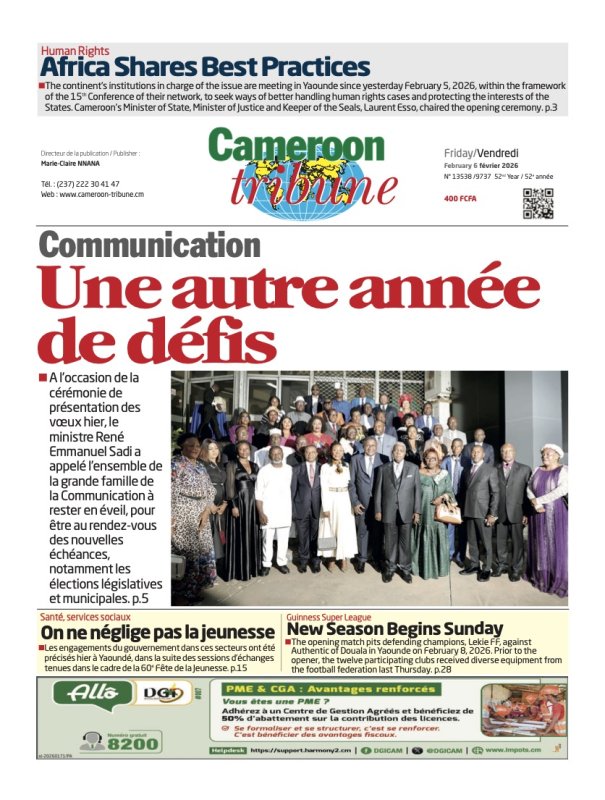Pastry making : IDPs, Host Community People Set For Market
- Par Kimeng Hilton
- 17 Sep 2023 16:59
- 0 Likes

The six-week workshop was organized by the International Organization for Migration. With the support of the Japanese Embassy and Cameroon government.
“This is only a trial – the first step in an endeavour to assist Internally-displaced People to get out of perpetual dependence and assistance. After receiving training and presenting their business plans to some financial executives in Yaounde on September 16, 2023, what remains now is securing funding for their projects. The International Organization for Migration will serve as moral warranty for the bank loans,” Abdel Rahmane Diop, the International Organization for Migration, IOM Chief of Mission to Cameroon commented. He spoke in Yaounde on Saturday, September 16, 2023 at a ceremony present five Internally-displaced People, IDPs and two host community members.
Making Cakes, Business Plans
The seven participants underwent six weeks of training in pastry making and how to make business plans. The training was organized by the International Organization for Migration. And supported by the Japanese Embassy in Cameroon, the Ministry of Small and Medium-size Enterprises and Social Economy and Handicraft, and the Ministry of External Relations.
Socio-economic Wellbeing
The training was dubbed; “Pastry making as a vehicle for socio-economic well-being: Supporting Cameroon's Internally-displaced Persons and Migrants’ Reintegration.” Five of the participants were IDPs from the socio-political conflict in the North West and South West Regions. While the remaining two were members of the host community, Yaounde.
Traditional Dish Decorations
“I make cakes for all occasions because cutting a cake is a memory – a milestone to live to remember. It signifies a lot – it proves that something important happened,” said Miss Mange Willlord, 21, an IDP from Santa Mbei, Mezam Division in the North West Region.
“Cakes are there to make events more memorable – to change the look of events. Producing cakes has helped me to survive in Yaounde. If I get a loan for the business plan I presented, it will change my life and that of my family. I live with relatives and life has not been easy,” Willlord noted. Willlord produces cakes with traditional dish decorations like Eru and water fufu, maize fufu and kat-kati, achu and soup….
From School Dropout To Cake maker
Layle Clementina Kitche, 27, an IDP from Noni, Bui Division in the North West Region, was obliged by the war to drop out in Form Three in Kumbo in Bui Division of the North West Region and fled to Yaounde. Where she served as a baby sitter for some years, making some money to bring over her younger ones from the village to Yaounde.
Big, Big Dreams!
“As a little child, I loved pastries, and tried any recipe I saw online. If I could not, then I went to any chef to help me. I have noticed that many parents in Yaounde are too busy to get snacks for their kids everyday for school or home. I supply banana cakes and natural juice; and cakes and kossam …The training will help me to expand what I was already doing on a small scale. My dream is that in the next three years, my pastry business will not only be home delivery, but will be a huge super market selling different cakes!” Clementina said with an air of great hope.
Passing On Culinary Arts
According to the International Organization for Migration, human mobility is a powerful factor in the transmission of culinary art, while culinary art also feeds on human mobility. It is widely recognized that cooking plays a decisive role in the integration, and even reintegration, of migrant populations. It is easy to see how cooking can be one of the key income-generating options in the settlement and/or resettlement process. In many instances, the culinary arts not only build bridges between host and migrant populations, but also between men and women and between generations.
Culinary Arts And Migration
When considered in depth, culinary art is often a reflection of migratory flows; changes in composition, naming, tasting and the meaning given to certain dishes can express much more than diversity. From the point of view of the composition of dishes, it is also important to note that behind a culinary art lies economic considerations, linked to commerce - small or large - and often environmental considerations, linked to agriculture - family farming, forestry, etc - as well as to the environment.
Cuisine Particularities, Similarities
In view of the above, the International Organization for Migration, IOM is committed to strengthening unity through the promotion of culinary culture. In this context, IOM wishes to highlight both the particularities and similarities of cuisine, in order to highlight and strengthen unity between peoples, in the promotion of gender equality throughout its interventions. It is also about increasing options for the socio-economic reintegration of migrants; instead of limiting them to the same activities. Such an approach gives breath to the existing competencies amongst people on the move; that contributes to revamp their self-esteem.
After Tough Contest
On March 18, 2023, the final of the contest was held, pitting three finalists (out of the 9...
Cet article complet est réservé aux abonnés
Déjà abonné ? Identifiez-vous >
Accédez en illimité à Cameroon Tribune Digital à partir de 26250 FCFA
Je M'abonne1 minute suffit pour vous abonner à Cameroon Tribune Digital !
- Votre numéro spécial cameroon-tribune en version numérique
- Des encarts
- Des appels d'offres exclusives
- D'avant-première (accès 24h avant la publication)
- Des éditions consultables sur tous supports (smartphone, tablettes, PC)














Commentaires